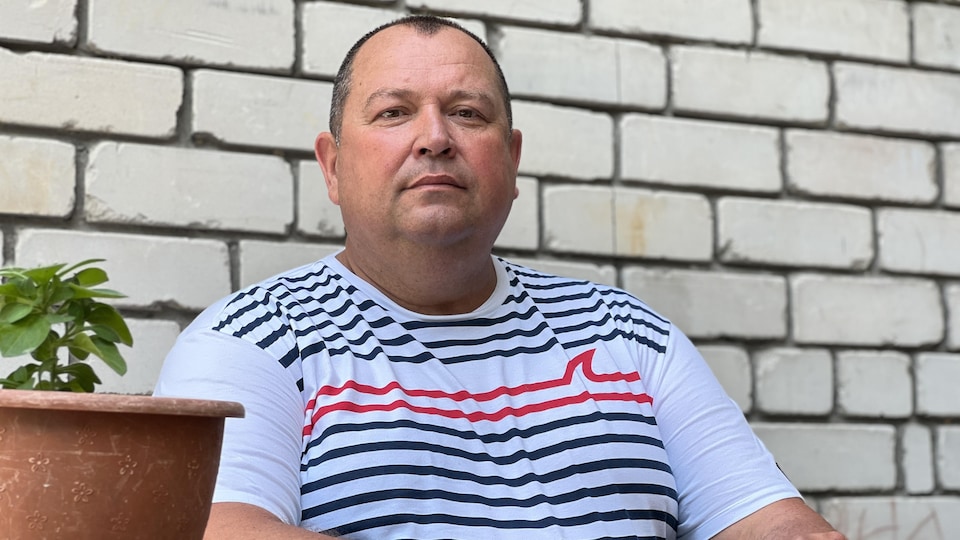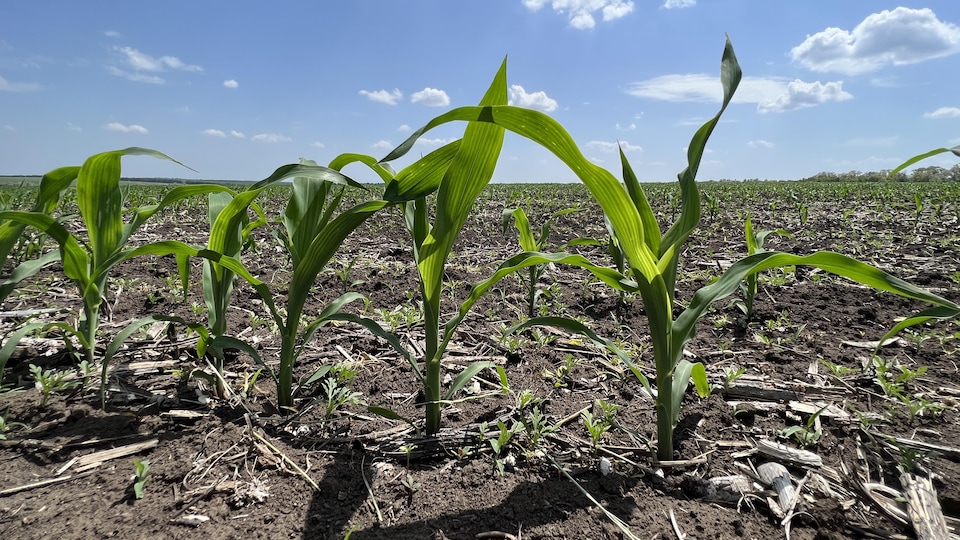The grass is tall and moving with the breeze, the soil is not too dry despite the heat. The path leads to wide green fields, spotted with yellow.
We were in front of a field of rapeseed, whose flower inspired the yellow of the Ukrainian flag. The sun is warm, the sky is blue, the countryside is quiet. The war seemed so far away.
However, Russian and Ukrainian soldiers are fighting on lands located only a few dozen kilometers away. Lands that, in times of peace, were sometimes cultivated as farms.
These fertile lands in southern Ukraine explain why the country is considered one of the breadbaskets of the planet. Around us, crops of wheat, corn, sunflower and rapeseed.
There is no time to think about war, explains Vasyl Gurim, a cap screwed to the head. There are harvests to be made. And all the complex problems to solve. Puzzles generated by the Russian invasion.
The war came to complicate a difficult job. Those without reserves of fuel, fertilizer and herbicides are faced with shortages and higher prices. The shots were hurting.
The maintenance of mechanical equipment is also more complicated. Spare parts are becoming rare and more expensive. It is difficult to have special equipment to deliver to a country at war.
But the most urgent thing is finding places to store crops. The grain traps are full, recalls Vasyl. Tons of cereals threatened to rot there, blocked, forbidden to cross the Black Sea.
Vasyl’s solution is not perfect. He ordered large white plastic bags. Long tubes, in fact, to be filled with grain using heavy machinery.
This would store a small portion of the crops and protect them from possible Russian strikes against grain warehouses.
Just blah-blah-blah
Away from the farms, Vasyl’s boss conjures up a whole different set of puzzles. Part of the KSG Agro group’s lands are located near combat zones.
These lands are adjacent to the Kherson region, which was seized by the Russians in March and the scene of recent Ukrainian counter-offensives. Every day shells fall on the farmannounced Serhiy Kasianov, head of the group KSG Agro.
If you go there, you will find yourself under bombs. There are places that cannot be reached because there is a mine. It’s a big deal, but we farm where our army allows us.
Serhiy also worries these days are the difficulties in selling his cereals outside Ukraine. The ports are closed, no one outside the country can buy my grain.
Trains only allow a small fraction of Ukrainian production to be exported to Europe. The rails are not quite the same size between Ukraine and the rest of Europe, which imposes border delays.
Trucks can carry the heaviest materials, such as sunflower oil. But delays in crossing the border with cargo tripled. Drivers are hard to find.
Production costs doubled, but the grain was sold at only half the standard price. A poor financial situation, along with a logistics problem very difficult to solve.
Europe has promised to find solutions to these logistics problems. This is an economic and security issue for the Old Continent.
For now, just blah-blah-blah, Serhiy launched, furious. In his eyes, Europe is not doing enough to help export Ukrainian products.
Work with the Russian occupier?
The problems are quite different for producers whose lands are located on the other side of the front line, in the region under Russian control.
We don’t know what will happen tomorrow, Tatiana admits. It was an assumed name chosen to protect the fifteen employees of his farm who had to work under the watchful eye of Russian soldiers.
Tatiana is safe on Ukrainian territory, but remains in contact with employees and relatives who have remained in the Kherson region.
At the end of last week, he wrote in a recent message, the orcs (a Ukrainian insult to Russian soldiers inspired by The Lord of the Rings) asked some farmers and took the agricultural machinery. Others were forced to pay bribes.
His claims cannot be independently verified. However, many different testimonies point in the same direction what Tatiana is pushing.
Curfews and multiple identity checks would greatly hinder agricultural activity. It would be impossible to get to work early in distant lands.
At checkpoints, Tatiana says, soldiers verify the equipment, identity and phone content of our employees. It can take up to five days to complete a task that is normally done in a day.
Fuel and fertilizer will come from the Crimea, which is also under Russian control. Those who did not have time to stock had to trade with the Russians.
Prices are lowTatiana admits, before adding that a farmer who supplies himself in this way is sometimes accused of collaborating with the enemy.
And then there’s the big unknown: will farmers be able to enjoy the fruits of their labor? The only outlets, so far, are in the Russian market… at prices dictated by Russia.
Typically, a ton of sunflower seeds sells for about 1000 Canadian dollars, but these days the Russians offer three times less. It’s not much, but it’s better than them coming armed to steal everything.
In Tatiana’s eyes, there was no question of quitting work on family land. This is our way of showing to those who have stayed [dans la région de Kherson] that we are on their side.
Cultivate as a kind of resistance, cultivate as support for countrymen. A form of hope that the Ukrainian army is chasing the Russian occupier from these lands and farms.
Source: Radio-Canada

